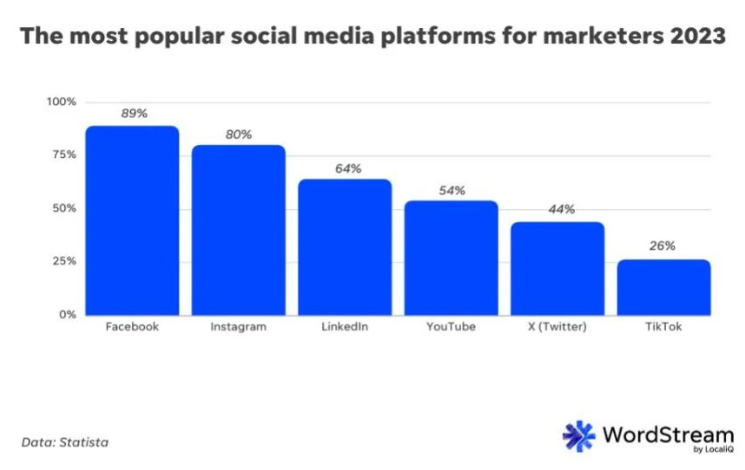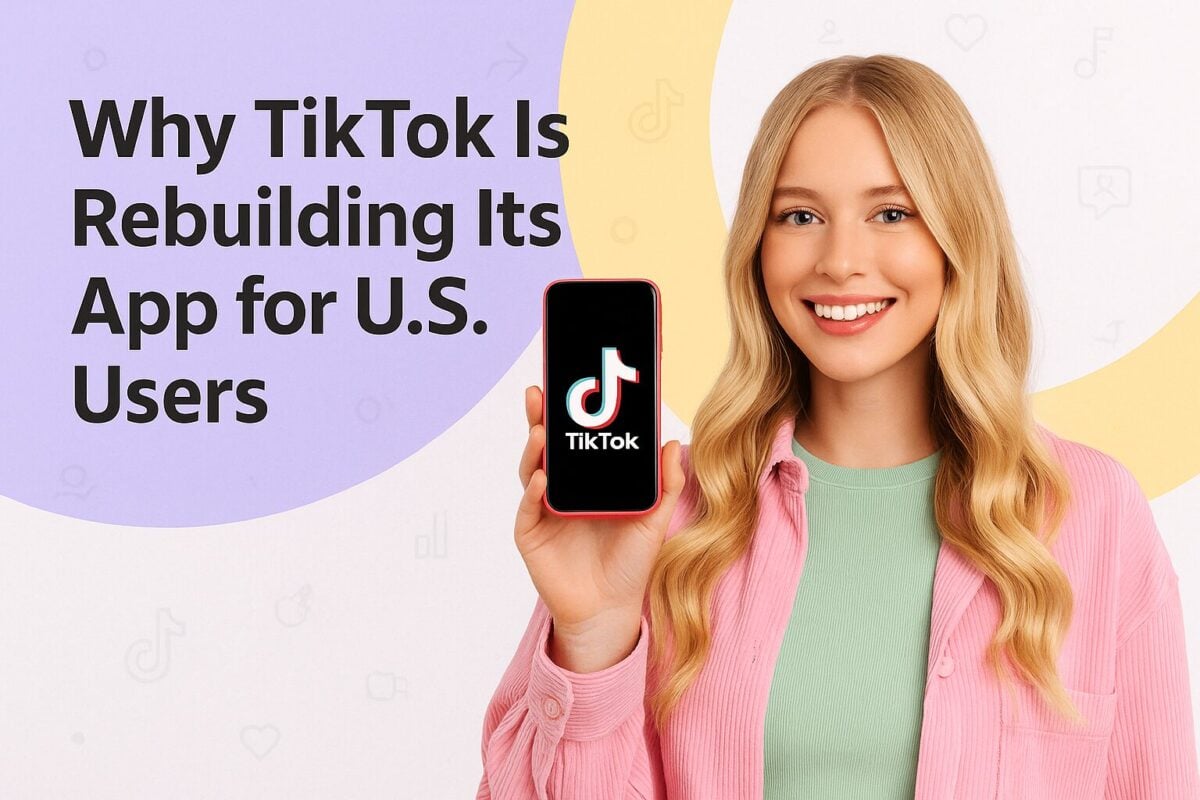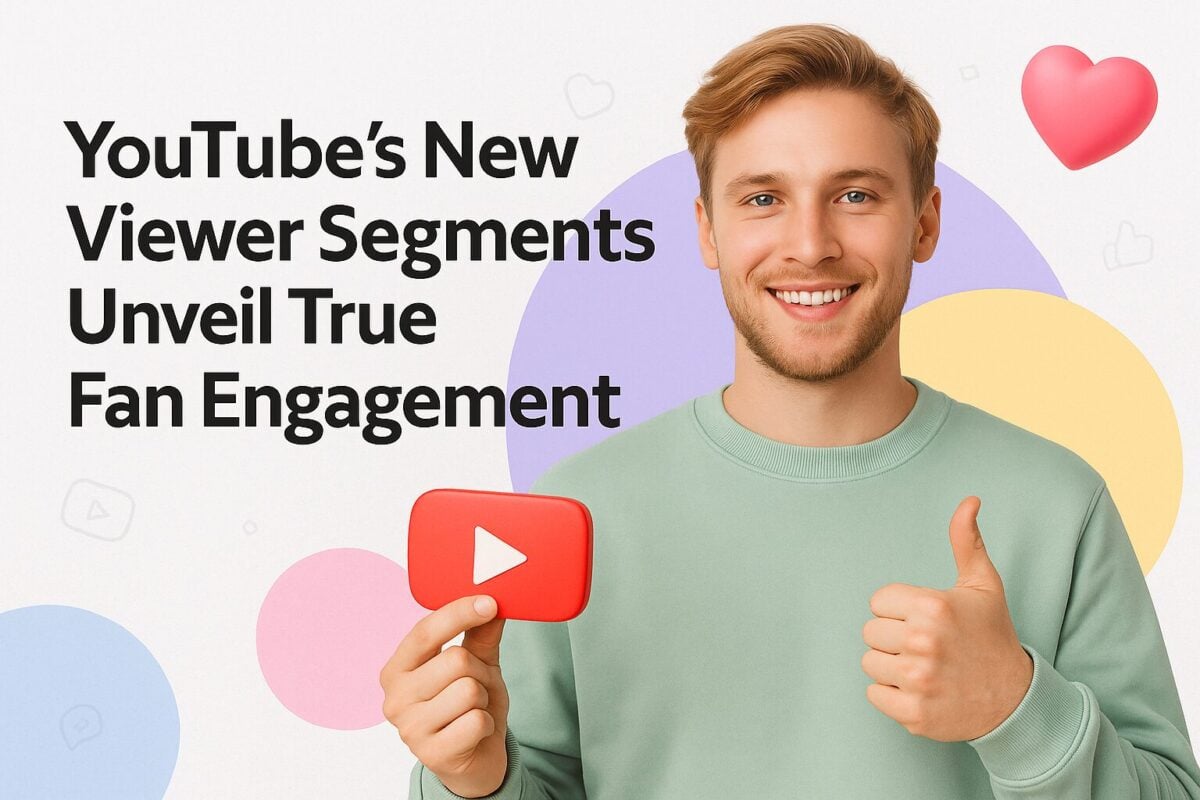Marketing on social media has changed from a nice-to-have to a must-have for modern brands. The power of social can be gauged from these facts:
- Currently, there are nearly 5.17 billion social media users. The number of social media users is expected to increase to 5.85 billion by 2027.
- On average, people spend 2 hours and 24 minutes daily on social media.
Whether you’re an expert or a rookie at social media marketing, you will agree with us that it isn’t easy. Changing technological and social trends make it very challenging. Additionally, there are difficulties in strategy formulation, ROI measurement, and allocation of time and budget.
In this post, we cover five of the most common social media marketing challenges that marketers face and actionable solutions to overcome them.
Social media marketing can be a mystery if you are unfamiliar with the way it works. By understanding its challenges, you can cope with them better. You can draft your strategy, use the right tools, and tweak your approach accordingly.
Challenge #1: Lack of Connection Across Departments
One of the most significant challenges in social media marketing today is the lack of connection across departments within organizations.
This disconnect often leads to fragmented strategies, inconsistent messaging, and missed opportunities to engage customers effectively.
When social media teams work in isolation from other critical departments like sales, customer service, and product development, the overall marketing strategy can suffer.
Statistics highlight the issue: A recent report indicates that 71% of business leaders acknowledge a lack of strong collaboration between social media and customer care teams, despite 88% agreeing that social insights are crucial for delivering exceptional customer service.
Furthermore, companies that successfully integrate social media data into broader business strategies see a 20-40% increase in customer spending, underscoring the financial impact of departmental alignment.
To address this challenge, organizations must break down silos by fostering cross-departmental communication and collaboration. This can be achieved through: Solution
By ensuring all departments are aligned, companies can create a more unified and effective social media strategy, leading to better customer experiences and stronger brand loyalty. Investing in this alignment is not just about improving internal processes—it's about enhancing the overall effectiveness of social media marketing efforts, which can directly influence a company's bottom line.
Challenge #2: Identifying the Right Platform
The next hurdle marketers face is in the selection of which platforms to leverage.The COVID-19 pandemic has increased social media use among users and drew marketers to new platforms that boomed during the pandemic.
However, few marketers research their target markets thoroughly enough to identify the platforms where their target audience is active.
You can see that over 90% of consumers hope to use YouTube to discover brands, whereas 90% of marketers will consider it for their marketing efforts. If brands don’t revisit their marketing strategy, then they’ll likely miss out on more bankable platforms.
Investing in the wrong platforms can exhaust your budget, especially if you regularly use paid ads. If the decision-makers in your company are not sold on the idea of social media marketing in the first place, they might just pull the plug if you commit this misstep.
In a way, if you overcome the first challenge of goal setting, you are well on your way to overcoming this challenge too. For example, if you want to establish a personal connection with customers, Twitter is your best bet. On the other hand, Instagram is great if you want to leverage influencers to spread brand awareness. Overall, your social platform investment should factor in your potential audience reach, ad cost, traffic potential, lead generation, and demographic, among others. Take the time to get to know your audience. Which platforms are they active on? What are their main activities on social media? Dissect your audience demographics to learn about their genders, ages, and locations. Then, meet them where they are active. A lot depends on the nature of your business as well. B2C brands need to be active on visual platforms like Facebook and Instagram to grab the attention of consumers. B2B brands can benefit from local SEO on Google My Business and Bing. They should also post regularly on LinkedIn to make useful connections with brands. You also need to keep tabs on your competitors. “Out of sight, out of mind,” is very true for social media users. If you don’t have a strong presence on channels that your competitors are acing, you’re bound to lose a lot of conversion opportunities. Social media listening can help you track the brand mentions of your competitors. Identify the channels where they are garnering attention. Then, plan outreach on those channels. Solution
Challenge #3: Understanding the Target Audience
There are many brands that do superb business in-store but fail miserably on social. The difference is that in brick-and-mortar stores, customers approach brands, whereas, on social media, brands have to seek out customers. And, do some brands have no clue how to do this.
Too often, marketers create content first and figure out the target audience later. They have the misconception that great content converts, even if it is not targeted. Though great content gets engagement, it might not generate leads if it isn’t tailored to your target audience’s needs.
Directionless marketing relies on a spray-and-pray approach that seldom gives the desired returns. In fact, it can damage your brand’s credibility. You run the risk of getting blocked or reported if you bombard people with irrelevant content.
Do you know who your ideal customer is? Have you created a precise buyer persona? Dig into your existing customer base, ad analytics, and email subscriber list. Create a fictional customer avatar from the data you collect. Get personal with the data. How many kids does your customer have? How do they spend their weekends? What kind of music do they love? Gather as many insights as are relevant to your business. You can use social listening tools to capture insights. You can drill down into customer conversations around your brand, product, and niche. Understand the consumer sentiment and pain points to shape your campaign goals and content. Solution
Kraft Foods used social data when they were planning to introduce mini-burgers or sliders. Using social listening, they identified slider themes popular among different customer segments. Social research guides the brand’s product strategy as well. Their super-successful Mayochup was a result of one such research.
Want #mayochup in stores? 500,000 votes for “yes” and we’ll release it to you saucy Americans.
— H.J. Heinz & Co. (@HeinzTweets) April 11, 2018
Social listening will also help you understand the “why” behind customer actions. Why are they following a particular platform? Why did they unfollow your brand? Why is your brand mention volume low? Use the insights you gathered to establish a personal connection with customers and create more appealing content.
Challenge #4: Declining Organic Engagement
The online world is constantly changing, continuously giving rise to new engagement tactics. Our fast-paced lifestyles inform us of new ways of reading, watching, or even conversing with others. Brands that can’t keep up with these trends end up losing their leads and even their audiences altogether.
Garnering social media engagement is a competition to gain followers and even customers. But in its Social Media Industry Benchmark Report, RivalIQ reports decreasing organic engagement. This only proves that paid ads are gradually monopolizing the marketing industry within social media platforms.
The downward spiral of organic engagement tells us that social media algorithms are becoming increasingly difficult to overcome. Unless you have paid promotions under your belt, your brand is likely to spiral into social media oblivion. But even with paid ads, high-quality content is key to gaining engagement online.
Solution
Know what your target audience wants to see by assessing your top-caliber posts. Find their common ground, and capitalize on that for future posts.
Granted, creating high-quality content takes time and investment. Repurposing your old content can help you save some trouble. For example, you can take an old video, snip it, and post it as new content on short-form content platforms like TikTok and Instagram.
In terms of the most engaging type of content, short-form or less than five-minute videos should be at the top of your list. Short-form content is not only easy to create and share but also gains more than twice as much engagement as long-forms. Note, however, that long-form content is still more appropriate for YouTube.
You should also focus on content that appeals to your audience. More than half of consumers like seeing product-centric ads, which prominently feature products, services, and real customers. But spin that with user-generated content that allows your users to win prizes (case in point: yogurt company Chobani’s #SwitchTheChobaniFlip on TikTok), and you’ll surely cut through the competitive social media noise.
Challenge #5: Meeting Consumer Expectations
Aside from gaining followers and engagements, social media marketers are also challenged by consumers’ current expectations. As we head into the metaverse, the third iteration of the internet, more people are drawn to emerging technologies, particularly non-fungible tokens, augmented and virtual reality, and virtual spaces. When interacting with brands in the future, younger generations of consumers—Gen Zs and millennials—expect to use technology.
Moreover, people want to identify with a brand that represents similar values. Brands that speak out on social media also carve a powerful identity for themselves and become culturally relevant online.
However, marketers usually have a hard time pushing for this, leaving it to their company leaders to decide. If brands fail to take a proactive approach and revisit their identity, then they’re likely to become stagnant or outdated.
Develop a distinct voice that makes your brand authentic. This voice must be aligned with your customers’ values. Support issues that matter to your company, and build a relationship with customers who share a similar advocacy. You can also create positions that can help you address issues that your company wants to tackle. Hire talents that have had a similar role in the past and who can push their higher-ups to speak up and raise awareness on certain topics. Additionally, invest in metaverse strategies that your consumers would surely engage in. Take it as an opportunity to gain a competitive edge and adopt future strategies early on. This will not only help you expose your brand to a new generation of online users but also allow you to stake a claim in the future of the internet. Solution
Ready to Tackle These Challenges?
All types of marketing come with their own set of challenges. Social media marketing is no exception. Now that you are familiar with these issues, you are better prepared to handle them. Use the tips and strategies mentioned in this post to risk-proof your social media marketing efforts.
Frequently Asked Questions
What are the most common challenges in social media marketing?
The most common challenges in social media marketing include creating consistent and engaging content, managing organic reach amid algorithm changes, handling negative feedback and maintaining a positive online reputation, generating high-quality leads, and navigating the increasing costs and complexities of ad campaigns, especially with new privacy regulations. Marketers must continuously adapt their strategies to address these evolving challenges effectively.
How can small businesses overcome social media marketing challenges?
Small businesses can overcome social media marketing challenges by focusing on a few key areas: prioritizing quality over quantity in content creation, leveraging community engagement to enhance organic reach, using budget-friendly tools for monitoring and responding to online feedback, and implementing targeted, data-driven ad campaigns. Additionally, staying informed about platform updates and utilizing automation tools can help small businesses stay competitive.
Why is organic reach declining on social media platforms?
Organic reach is declining on social media platforms due to several factors, including algorithm changes that prioritize paid content, increased competition for visibility as more businesses join these platforms, and shifting user behavior that favors content from friends and family over brand posts. To counteract this, marketers should focus on building strong communities, encouraging user-generated content, and utilizing platform-specific features that can boost organic visibility.
How do privacy regulations impact social media marketing?
Privacy regulations like GDPR and CCPA have significantly impacted social media marketing by restricting how marketers can collect and use personal data for targeting ads. These regulations require marketers to be more transparent about data usage, obtain explicit consent, and implement privacy-friendly strategies, such as contextual advertising and using first-party data. Compliance is crucial to avoid legal repercussions and maintain consumer trust.
What strategies can improve the ROI of social media ad campaigns?
To improve the ROI of social media ad campaigns, marketers should focus on precise audience targeting, utilizing A/B testing to refine ad creatives and messaging, and allocating budgets strategically across high-performing platforms. Additionally, integrating cross-platform campaigns and regularly analyzing performance metrics can help optimize spend and achieve better results. Using privacy-compliant retargeting techniques can also enhance the effectiveness of ad campaigns while adhering to regulations.




